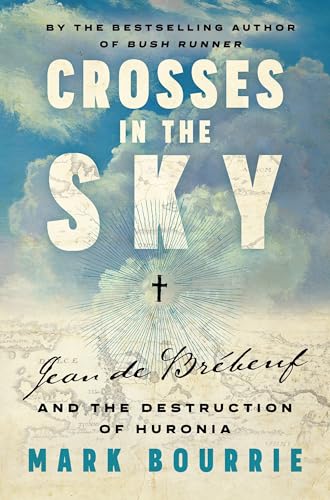
What was your goal while writing this book?
I wanted to tell a story about a disastrous – probably the most destructive – example of Indigenous-European contact, one that was already famous as a heroic narrative, and explore the motivations of all the people involved. Telling this story was, I believe, a good way of explaining how all sides entered an Indigenous-European partnership, and how these new relationships often had unforeseen catastrophic consequences. Almost always, these consequences were suffered by Indigenous people.
Was there a book or piece of writing that made you want to pursue writing as a career? What was it?
I am a life-long reader. I was raised in a home where history was important. My dad took university courses starting when I was about 12 and I would read all the books. We lived in a tourist area near Collingwood, and there was a lot of time when there weren’t many kids around. It was quite a while later when I realized I might actually be able to write books.
Who or what were your influences while writing this book?
This is the first book that explores some of the intertwining of my own family with a historical event.One of Champlain’s young interpreters, Nicolas Marsolet, one of my ancestors, got into a dispute with Champlain and Brebeuf, documented with some hostility by the Jesuits in the 1630s, about the way Champlain treated young Indigenous girls. To my great relief, Marsolet took the right side of the argument. One of my great uncles supposedly used a miracle to find the site of Brebeuf’s death. Another great-uncle built the interior of the Martyrs’ Shrine. My great-great grandfather actually bought part of the site of the Jesuit mission ruins more than a century ago, and as a teenager, I was a friend of the archaeologist who excavated the site.
What is one thing you learned while writing this book you wish everyone knew?
People can have good intentions and may honestly want to help people but are so blinded by their own ideologies and cultural norms that they fail to see the damage they do to people who see the world differently. They may be very kind people with good hearts, but they need to respect the beliefs and practices of those they want to help. We still see this in what we think of as developing countries.
Tell me a bit about why writing about Canada/Canadians is important to you?
A sense of self and place is important to me, and, I believe, to many readers. Canada is more like a continent than a country. It is very complex. Its history is complicated and nuanced. And it’s very different from the story of the United States and every other country. If we are to survive as a country, fending off the influence and threats of the United States and overcoming the internal forces of division, we need to understand how we got to the place where we are. History – more accurately, pseudohistory – has also become an important weapon in the ideological and cultural fights within Canada. When people do use Canadian history to try to make some kind of point, they need to know what they’re talking about, and they must have access to good source material.

